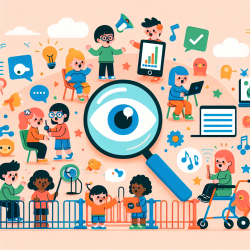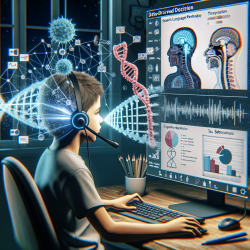As Special Education Directors, we constantly seek innovative ways to support our students' mental health. The recent study titled "Extra-Curricular Activities and Well-Being: Results From a Survey of Undergraduate University Students During COVID-19 Lockdown Restrictions" provides valuable insights that can be translated into practical applications for our educational settings.
According to the research, participation in extra-curricular activities significantly impacts students' well-being, especially during stressful times. The survey of 786 undergraduate students revealed that activities like listening to music, watching movies/series, and socializing virtually were the most frequently engaged. These activities were not only popular but also perceived as beneficial for mental health.
Here are some key takeaways and actionable steps for practitioners:
- Promote Music and Creative Arts: Encourage students to engage in music and other creative arts. The study found that listening to music and playing instruments were highly beneficial. Consider integrating music therapy programs or offering virtual music sessions to help students manage stress.
- Foster Social Connections: Virtual socializing was one of the top activities students engaged in. Create opportunities for students to connect with peers through online clubs, virtual study groups, or social media platforms dedicated to student interactions.
- Encourage Physical Activity: Outdoor exercise received the highest rating for contributing to well-being. Organize virtual fitness challenges, outdoor activity recommendations, or socially-distanced group exercises to keep students physically active.
- Implement Proactive Mental Health Supports: The research highlighted a significant interest in online group music and art therapies. Consider offering these as proactive mental health support options. These therapies can be cost-effective and accessible, providing students with valuable coping mechanisms.
Individual differences also play a crucial role in how students respond to stress and which activities they find helpful. Tailoring support to meet these diverse needs can enhance the effectiveness of mental health initiatives. For example, students with high emotional stability or conscientiousness might benefit more from structured activities like exercise, while those high in openness may prefer creative outlets like journaling or art.
By incorporating a variety of extra-curricular activities and proactive mental health supports, we can create a more inclusive and supportive environment for all students. Encouraging participation in these activities can lead to improved mental health, reduced anxiety, and a stronger sense of community.
To read the original research paper, please follow this link: Extra-Curricular Activities and Well-Being: Results From a Survey of Undergraduate University Students During COVID-19 Lockdown Restrictions.










